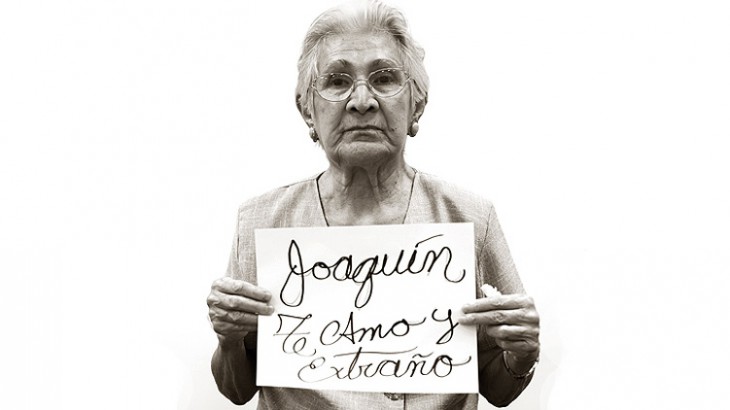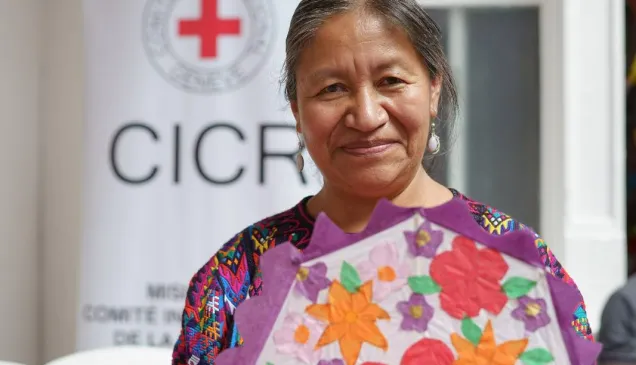Mexico and Central America: Missing persons and their families
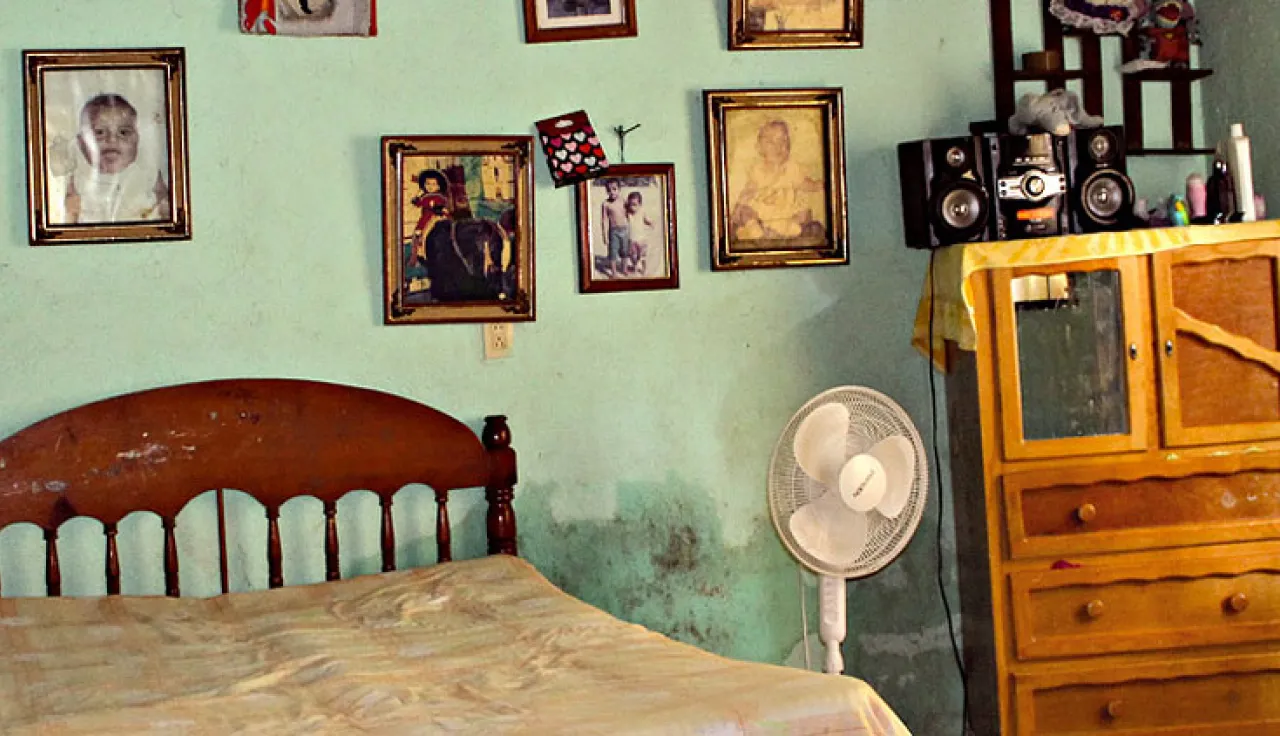
When dark began to fall, I went to see where my family was. I found 27 people dead, but the bodies of my daughter and my grandchildren weren't there. I felt that my family had been wiped out. [...] I am 82 and I don't want to die without knowing what happened to them.
Father and grandfather of missing persons from Ixcán, Quiché department, Guatemala.
Disappearances are a terrible tragedy not only for the people concerned, but also for their families and friends. They cause unending anguish and can haunt societies for generations.
The ICRC considers missing persons to be those whose whereabouts are unknown to their families and those unaccounted for as a result of situations such as armed conflict, violence, natural disasters and migration processes.
The people who disappear are first-hand victims, but their families are victims too. When a person goes missing, the family experiences great distress and torturous uncertainty, leading to physical, emotional and psychosocial problems, often compounded by legal and financial difficulties. Disappearances also have an impact on the community in which the missing persons lived, causing tears in the social fabric.
The right of families to know the fate and whereabouts of their loved ones is therefore a fundamental concern recognized in international law. The authorities have the responsibility and obligation to take the measures required to ensure that these families are treated with dignity, that their needs are met and that they are given the information they need to move on with their lives.
In recent decades, the ICRC has taken humanitarian action to address the problem of missing persons and their families in countries all over the world, including El Salvador, Guatemala, Honduras, Mexico and Panama, which are places where disappearances are often due to a combination of factors, such as past conflicts, situations of violence and migration processes.
As part of its efforts in this area, the ICRC works with civil society organizations and provides technical assistance to the authorities concerned, with a view to mitigating the serious humanitarian consequences of this devastating reality. In some specific cases, the ICRC provides direct assistance to the families of missing persons in the region.
The need to know
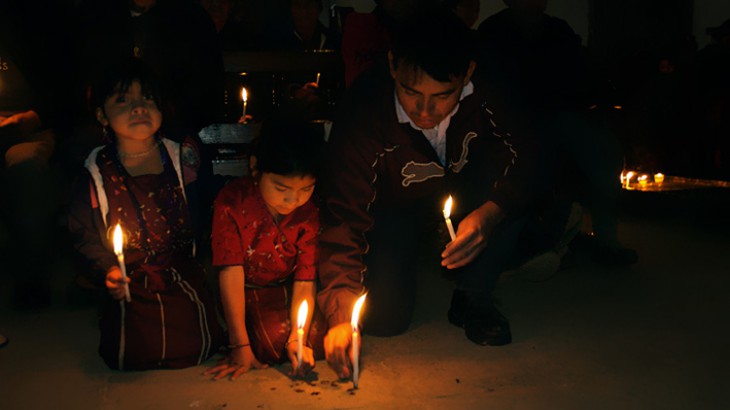
A family honouring the memory of a missing loved one at a wake. Quiché department, Guatemala. ©ICRC
The families of missing persons have a need and a fundamental right to know what has happened to their loved ones. They live in the grip of constant anguish, intent on a search that they will not give up until they have the answers they so desperately need.
Until there is reliable evidence confirming that a missing person has died, he or she is assumed to be alive. It is essential that the authorities pursue all avenues of inquiry in the search for the missing person. In cases in which the missing person has died, it is crucial for families to have proof of their death and all the facts about what happened to them, so that they can start to grieve. The remains must be returned to the family, so that they can be laid to rest in accordance with the rites and rituals dictated by their cultural, social and religious traditions.
In order to provide an effective response and assistance to families, the authorities must establish and implement effective tracing and search mechanisms. Interinstitutional coordination is also required at both the national and regional level to ensure the smooth flow of information between the authorities and the institutions concerned. Regular and effective communication must be established and maintained with the families throughout the search process, so that they can make informed decisions.
Strengthening capacities to search for and identify human remains

Training workshop for forensic specialists, City of Mexico, Mexico. ©ICRC/Jesús Cornejo
Identifying the deceased is a crucial stage in the process that helps to give families the answers they need about the whereabouts of their loved ones. It is therefore essential for the institutions concerned to systematically and correctly carry out procedures for the search, location, recovery and forensic analysis of unidentified remains in order to obtain reliable information that will give families closure and peace of mind.
In view of the complexity of recovery, exhumation and forensic analysis procedures, the authorities need to implement international best practices and facilitate the involvement of families and civil society organizations in all stages of the process.
The ICRC provides guidance and tools to strengthen institutional capacities and develop registers containing the information required to search for missing persons. These registers must include accurate information about the site where the remains were found, physical, medical and dental features, photographs, fingerprints and details of their current location, which may be a forensic laboratory or a cemetery.
The ICRC also facilitates coordination and exchange mechanisms for forensic institutes and civil society organizations involved in tracing missing persons at the national and regional level.
Managing information on missing persons and unidentified remains
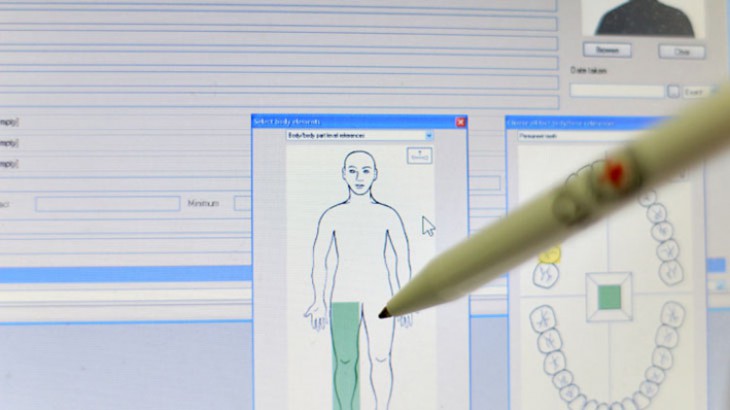
Database software developed by the ICRC. ©ICRC/Arturo Ávila
Search procedures generate a huge amount of information which must be processed to facilitate the task of tracing missing persons. It includes the data collected, recorded, organized, stored, used and shared throughout the process and the information supplied by families and friends.
As a large part of the information used to trace and identify missing persons comes from different local, national and regional entities, it is essential to establish mechanisms for the coordination and exchange of information on the exhumation, identification and transfer of human remains.
The ICRC works with authorities in the region to strengthen their information management capacities and promotes the standardization and implementation of unified information management protocols and systems for missing persons at the local and regional level.
As identification processes rely on cross-matching missing persons with unidentified remains, it is also crucial for both sets of information to be centralized and shared.
In order to facilitate this task, the ICRC provides the authorities and institutions concerned with standardized data-gathering tools, including forms for family member interviews, forms for recording forensic information and computer software that facilitates the identification process through the recording, processing and analysis of the information available on missing persons and unidentified remains.
In Guatemala, the ICRC provides direct support to family and civil society organizations to assist them in recording, processing and consolidating their information on missing persons, with a view to building a unified register.
Adoption of legal frameworks
The suffering of the families is compounded by the numerous legal obstacles they face. They often have to wait years before the absence of a missing person is officially recognized, during which time they have trouble exercising certain rights, such as property ownership, the custody of children, receipt of an inheritance or starting a new life.
At the same time, the rights and interests of missing persons must be protected at all times until the facts about their fate can be established. They must therefore be granted a specific legal status.
The authorities must have legal frameworks in place that enable family members to make an application for a search to be undertaken, provide the information they have and be kept properly informed about the progress and results of the search. They must also implement mechanisms that allow families to apply for and receive the support they require to meet needs arising from the disappearance of a loved one.
To this end, the ICRC promotes the adoption and implementation of legislation and regulations on the protection of missing persons and their families and of national legal instruments that acknowledge the problem and provide for an appropriate response to meet the needs of families.
Assistance and support for the families of missing persons
Victoria has spent six years searching for her son Joaquín, who went missing on his way from El Salvador to the United States. ©ICRC/Jesús Cornejo
The ICRC endeavours to raise the awareness of the authorities and institutions concerned and the public at large about the great suffering caused by the uncertainty and humanitarian consequences resulting from the disappearance of a loved one.
It also provides guidance and capacity building for government institutions and civil society organizations to ensure that the families of missing people receive proper assistance and support throughout the search process and that these services help them to find closure and prevent revictimization.
In some cases, the ICRC supports the families of missing persons during search and identification activities, offering psychosocial support and assisting them in laying their loved ones to rest.

